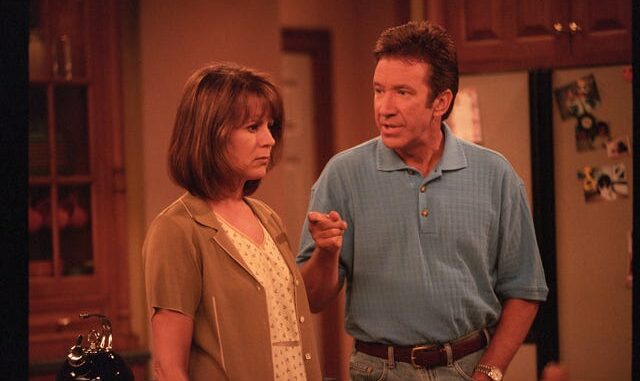
The unmistakable grunt. A primal roar of male ambition and mechanical curiosity, it echoed through living rooms across America in the 90s, the signature sound of Tim "The Tool Man" Taylor, master of controlled chaos and enthusiastic incompetence. For eight seasons, Home Improvement wasn't just a sitcom; it was a weekly catechism of masculinity, family dynamics, and the enduring quest for "more power." Now, whispers from Tim Allen himself suggest a possible reboot, not just bringing back the Tool Man, but presenting him in a new guise: the grandpa. This isn't merely a cynical rehashing of a beloved series; it’s a fascinating proposition that invites us to reflect on nostalgia, evolution, and the very nature of "improvement" across generations.
The original Home Improvement was a perfectly calibrated machine of 90s sensibilities. Tim Taylor, played with boisterous charm by Tim Allen, was the archetypal suburban dad – a well-meaning but often oblivious patriarch whose grand visions for home renovation invariably ended in comedic disaster. His foil was his endlessly patient wife, Jill; his ever-present, omniscient neighbor, Wilson; and his three sons navigating adolescence. The show found its rhythm in the juxtaposition of Tim’s explosive "more power" philosophy – applying brute force and excessive modifications to everything from household appliances to relationships – against the quiet wisdom of Wilson and Jill’s grounded reality. It was a nostalgic embrace of a perceived simpler time, where problems could often be solved with a bigger engine or a heart-to-heart over the fence.
To imagine Tim Taylor now, two decades later, in a "grandpa role," is to contemplate a significant shift in that iconic dynamic. What does "more power" mean when your joints creak, and the latest gadget requires a tutorial from a grandchild? The humor would undoubtedly pivot from the physical comedy of demolition to the generational comedy of bewildered exasperation. Will Binford Tools still be cutting-edge, or will Tim be lamenting the demise of manual labor while struggling with smart home technology? The "grandpa role" implies a passing of the torch, a reflection on legacy. Perhaps the workbench is now shared, and the grunts are less about exertion and more about general disbelief at the modern world. This shift allows for a richer tapestry of humor and heart, as the once-unflappable Tool Man grapples with his own aging, the wisdom (or lack thereof) he can impart, and the sometimes-daunting pace of technological and social change.
This potential reboot is also a mirror held up to our own evolving relationship with masculinity and family. The 90s Tim Taylor, for all his foibles, represented a certain archetype of dad – handy, provider, emotionally stunted but ultimately loving. In 2024, the landscape of fatherhood and grandfatherhood is far more nuanced. Will Tim have to adapt to a world where "more power" might be interpreted as toxic, and genuine emotional expression is valued over stoic grunting? The reboot presents an opportunity to explore how a character beloved for a specific kind of masculinity navigates a different era. The humor could arise from his delightful anachronisms, or from his surprisingly tender moments of connection with a new generation who might find his old ways baffling, yet charming. The evolution of the family unit itself, the roles of women and children, and the challenges of intergenerational understanding all provide fertile ground for storytelling.
Moreover, the very idea of a Home Improvement reboot with Tim Allen embracing the "grandpa role" taps into a broader cultural phenomenon: our collective yearning for comfort in familiar narratives, yet also a desire to see them grow with us. As the audience that grew up with the show now navigates their own midlife, or even grandparenthood, a reboot becomes less about rehashing and more about communal aging. It's about seeing beloved characters evolve alongside our own lives, reflecting our own experiences of becoming parents, grandparents, and wrestling with the inevitable march of time. The iconic "Tool Time" set, now perhaps dusted with the metaphorical cobwebs of obsolescence, could become a poignant backdrop for conversations about what truly matters: not the biggest engine, but the strongest family bonds.
Ultimately, Tim Allen's hint at a Home Improvement reboot with a "grandpa role" is more than just a casting note; it's a fascinating proposal for a cultural excavation. It asks us to consider how a show built on the premise of "more power" can find new meaning in the quiet strength of age, the wisdom of hindsight, and the enduring power of family. If executed with care, it could transcend mere nostalgia, offering a tender and humorous commentary on growing older, the ever-changing face of progress, and the timeless truth that some things, like love and laughter, never need more power – they just need to be cherished. And perhaps, even after all these years, there's still a grunt or two left in the old Tool Man yet.